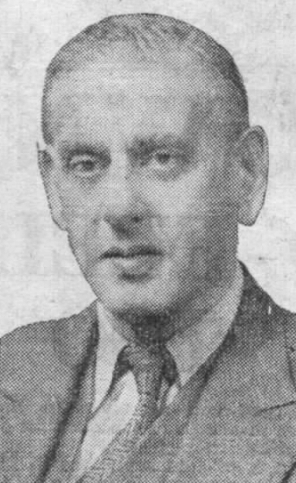Lewis Silkin, 1st Baron Silkin

Lewis Silkin, 1st Baron Silkin CH (14 November 1889 – 11 May 1972), was a British Labour Party politician.
Career
[edit]Lewis Silkin was born on 14 November 1889 to Abraham and Fanny Silkin, who were Litvak Jews from what was then the Lithuanian part of the Russian Empire.[1] His parents came to settle in the East End of London and were of modest means, Abraham cleaned the toilets of the Synagogue, gave Hebrew lessons and sold fruit off a barrow.[1] Lewis had several siblings, including Joseph Silkin (father of the poet Jon Silkin)[1] who he worked with as a solicitor and with whom he co-founded Silkin and Silkin. In 1950 he founded Lewis Silkin & Partners together with his son John. This is the London law firm where he practised and which still bears his name.[2] He became a member of the London County Council in 1925. He chaired the LCC Town Planning and the Housing and Public Health Committees and was a member of the Central Housing Advisory Committee.
He was elected as Member of Parliament (MP) for Peckham in 1936, and was a member of the Select committee on National Expenditure. He was Minister of Town and Country Planning in the Government of Clement Attlee from 1945 until he retired in 1950. He appointed Clough Williams-Ellis as the first Chairman of the Stevenage Development Corporation in 1946, with Monica Felton as the first woman Deputy Chairman.[3] (who then became the first female chairman between 1949 and 1951) and appointed Baroness Denington as the second female chairman of the same corporation in 1966.[4][5]
Global policy
[edit]He was one of the signatories of the agreement to convene a convention for drafting a world constitution.[6][7] As a result, for the first time in human history, a World Constituent Assembly convened to draft and adopt the Constitution for the Federation of Earth.[8]
Honours
[edit]
Silkin was raised to the peerage as Baron Silkin, of Dulwich in the County of London, in the 1950 Birthday Honours. He was further honoured in 1965 when he was made a Member of the Order of the Companions of Honour. Of his three sons, his eldest, Arthur, a civil servant, disclaimed the peerage. The other two, Samuel and John, both followed him into Parliament and became members of the Privy Council as well as Government Ministers. Although Samuel refused a knighthood as Attorney-General, he eventually became a life peer as Baron Silkin of Dulwich, of North Leigh in the County of Oxfordshire.
Samuel's son Christopher also disclaimed the hereditary peerage on the death of his uncle Arthur in 2001, the first time a peerage has been disclaimed twice.
See also
[edit]References
[edit]- ^ a b c "Who Was Who In Dulwich - Jon Silkin (1930-1997) poet". Dulwich Society. Retrieved 15 May 2022.
- ^ Lewis Silkin LLP
- ^ "MRS. Felton (Visit to Korea)". TheyWorkForYou. Retrieved 29 September 2021.
- ^ "Obituary: Baroness Denington". The Independent. 11 September 1998. Retrieved 28 April 2022.
- ^ Balchin, Jack (1980). First New Towns: An Autobiography of the Stevenage Development Corporation 1946-1980. pp. 15–17.
- ^ "Letters from Thane Read asking Helen Keller to sign the World Constitution for world peace. 1961". Helen Keller Archive. American Foundation for the Blind. Retrieved 1 July 2023.
- ^ "Letter from World Constitution Coordinating Committee to Helen, enclosing current materials". Helen Keller Archive. American Foundation for the Blind. Retrieved 3 July 2023.
- ^ "Preparing earth constitution | Global Strategies & Solutions | The Encyclopedia of World Problems". The Encyclopedia of World Problems | Union of International Associations (UIA). Retrieved 15 July 2023.
- Iain Dale, ed. (2003). The Times House of Commons 1929, 1931, 1935. Politico's (reprint). ISBN 1-84275-033-X.
- The Times House of Commons 1945. 1945.
{{cite book}}:|work=ignored (help) - Oxford Dictionary of National Biography
External links
[edit]- 1889 births
- 1972 deaths
- Labour Party (UK) MPs for English constituencies
- UK MPs 1935–1945
- UK MPs 1945–1950
- UK MPs who were granted peerages
- Jewish English politicians
- English people of Lithuanian-Jewish descent
- Members of London County Council
- People from Dulwich
- Members of the Privy Council of the United Kingdom
- Ministers in the Attlee governments, 1945–1951
- Barons created by George VI
- World Constitutional Convention call signatories